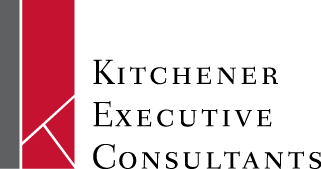COMPILED BY: Andrea N. Browne – washingtonpost
When applying for that dream job, it’s important to stand out from the dozens of other applicants. Job searching, however, can be difficult to do properly. There are several things that can either help you land an interview right away or prolong your search.
We’ve asked the experts for advice on the dos and don’ts of effective job searching and here is what they had to say:
Dos
Do… Look for the Right Fit. Select positions carefully, says Susan Heathfield, president of Heathfield Management Consultants and writer for About.com’s human resources section. You aren’t looking for just a job, she adds, but rather the best match for your skill set and experience. When preparing for preliminary interviews, ask questions that will help assess whether you and the company are a good fit. This allows you to tailor the search to your wants and needs, Heathfield suggests.
Do… Use Good Manners. Whether networking or at an interview, be courteous to everyone you encounter, says Patricia Mathews, president of human resources consulting firm Workplace Solutions. “This includes everyone from the receptionist to the vice president of the company.” When networking, you never know where your next opportunity may come from. During an interview, the hiring manager may ask everyone you spoke with that day for feedback, so it is important to be on your best behavior, mentions Mathews.
Do… Establish Next Steps. A common mistake many job seekers make is leaving an interview without knowing what’s next. Before it’s over, ask specific questions, says Tory Johnson, president and CEO of Women for Hire. Remember to ask when a final decision will be made. Applicants should also find out when an appropriate time would be to follow-up. This will help job seekers manage expectations and eliminate any ambiguity in the hiring process, Johnson adds.
Do… Stay in Touch. Be sure to obtain e-mail addresses for everyone you interviewed with. Send individual thank-you notes reiterating your qualifications and highlighting key points discussed during the interview, Johnson notes. Here is where you should also mention any additional information that helps to reinforce why you are the ideal candidate, she says.
Do… Proofread Before You Hit Send. While handwritten thank-you notes are best, suggests Mathews, if you decide to send one via e-mail, be sure to proofread it. This may seem obvious, but is a common mistake made by job applicants. “Write the e-mail, print it and re-read for grammatical errors.” This will help avoid any accidental mistakes that could hurt your chances of making it to the second round.
Dont’s
Don’t… Be Generic. The cover letter is usually the deciding factor in whether or not a hiring manager will look at your resume. Job hunters want to stand out from other candidates, Johnson suggests. Many will use a generic cover letter and resume and this is a mistake, she says. “Use language that expresses a specific interest in the position you are applying for.” Mention the job title, how you learned about the opening and how your skill set fits the position requirements.
Don’t… Dress Inappropriately. Not dressing in a professional manner for your interview leaves the interviewer with an impression that your work ethic may also be unprofessional, says washingtonpost.com’s How to Deal columnist Lily Garcia. Liken this to dressing sloppy for a first date: If you don’t care enough to make a good first impression, an employer may wonder if that translates to job performance, she adds.
Don’t… Chew Gum. Doing this in any setting requiring a measure of formality and decorum (interviews, court appearances, etc.) is rude, says Garcia. You would not show up to an interview eating food, would you? With that said, an applicant should apply the same discretion to gum chewing, she notes.
Don’t… Get Too Personal. For job seekers in transitional phases of their personal lives, it’s important not to turn the interview into a sob story. Mentioning things such as seeking employment as the result of going through a messy divorce can be an immediate turn-off, Johnson says. This is not appropriate during the interview process, she adds. It may lead a hiring manager to remember your “baggage” rather than your experience, Johnson suggests. Instead, focus on the task at hand — demonstrating your skills and proving that you are the best candidate.
Don’t… Waste Anyone’s Time. When job searching, it’s not uncommon to apply to a few jobs that aren’t exactly what you want, as a back-up plan. With that said, you may end up with several interviews at once, says Mathews. If you already know, however, that you are interested in some more than others, it’s never acceptable to not show up without explanation, she continues. “Call the company and cancel the interview ahead of time. Politely say that you’ve found another opportunity you feel is a better fit.”
